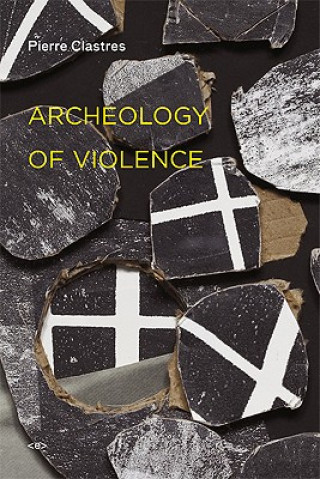
Kód: 04403761
Archeology of Violence
Autor Clastres
The war machine is the motor of the social machine; the primitive social being relies entirely on war, primitive society cannot survive without war. The more war there is, the less unification there is, and the best enemy of the S ... celý popis
- Jazyk:
 Angličtina
Angličtina - Vazba: Brožovaná
- Počet stran: 336
Nakladatelství: Autonomedia, 2010
- Více informací o knize

474 Kč

Skladem u dodavatele v malém množství
Odesíláme za 10-14 dnů
Potřebujete více kusů?Máte-li zájem o více kusů, prověřte, prosím, nejprve dostupnost titulu na naši zákaznické podpoře.
Přidat mezi přání
Mohlo by se vám také líbit
-

Optimising Pesticide Use
7084 Kč -

Coffin for Two (Oz Blackstone series, Book 2)
312 Kč -

Calling of Your True Self
391 Kč -

Confessions of an RX Drug Pusher
368 Kč -

Derrida for Architects
1134 Kč -

325 Hot and Spicy Curries
312 Kč -

Archery
572 Kč -

Berenguela of Castile (1180-1246) and Political Women in the High Middle Ages
2994 Kč -

Making Men Moral
2960 Kč -

California's Daughter
705 Kč -

Spider-man: Kraven's Last Hunt
433 Kč -
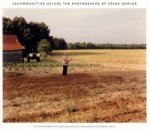
Accommodating Nature
1003 Kč -

Aquiles Priester
864 Kč -

Journal of Cosmic Archeology
256 Kč -

Swiss Vocational and Professional Education and Training (VPET)
1126 Kč -

Yankee Rock & Ice
541 Kč -

CYBERSECURITY FOR BEGINNERS
929 Kč -

Silver Surfer: Black
376 Kč -

Blue & Gold
519 Kč -

Astrology for the Soul
423 Kč -

Cultural Science
4350 Kč -

Asset Price Response to New Information
1665 Kč -

Black Bird, Vol. 18
301 Kč -

Advances in Differential Equations and Applications
1665 Kč -

Analysis of Post-Translational Modifications and Proteolysis in Neuroscience
3289 Kč -

Campbellism Examined and Re-Examined by Jeremiah P. Jeter...
989 Kč -

Writing and Script: A Very Short Introduction
249 Kč -

Archery Anatomy
463 Kč -

Survivors' Songs
976 Kč -

Erfolgsfaktoren Im Stiftungsmanagement
2256 Kč -

Bouře v krvi
173 Kč -

Gedichte
409 Kč -

L'archeologia del sapere
350 Kč -

Der Verband der Hochschullehrer fur Betriebswirtschaft
1358 Kč -

Swiat dinozaurow
412 Kč
Dárkový poukaz: Radost zaručena
- Darujte poukaz v libovolné hodnotě a my se postaráme o zbytek.
- Poukaz se vztahuje na celou naši nabídku.
- Elektronický poukaz vytisknete z e-mailu a můžete ihned darovat.
- Platnost poukazu je 12 měsíců od data vystavení.
Více informací o knize Archeology of Violence
Nákupem získáte 47 bodů
 Anotace knihy
Anotace knihy
The war machine is the motor of the social machine; the primitive social being relies entirely on war, primitive society cannot survive without war. The more war there is, the less unification there is, and the best enemy of the State is war. Primitive society is society against the State in that it is society-for-war.--from The Archeology of ViolenceAnthropologist and ethnographer Pierre Clastres was a major influence on Gilles Deleuze and Flix Guattari's Anti-Oedipus, and his writings formed an essential chapter in the discipline of political anthropology. The posthumous publication in French of Archeology of Violence in 1980 gathered together Clastres's final groundbreaking essays and the opening chapters of the book he had begun before his death in 1977 at the age of 43. Elaborating upon the conclusions of such earlier works as Society Against the State, in these essays Clastres critiques his former mentor, Claude Lvi-Strauss, and devastatingly rejects the orthodoxy of Marxist anthropology and other Western interpretive models of "primitive societies." Discarding the traditional anthropological understanding of war among South American Indians as arising from a scarcity of resources, Clastres instead identifies violence among these peoples as a deliberate means to territorial segmentation and the avoidance of a State formation. In their refusal to separate the political from the social, and in their careful control of their tribal chiefs--who are rendered weak so as to remain dependent on the communities they represent--the "savages" Clastres presents prove to be shrewd political minds who resist in advance any attempt at "globalization."The essays in this, Clastres's final book, cover subjects ranging from ethnocide and shamanism to "primitive" power and economy, and are as vibrant and engaging as they were thirty years ago. This new edition--which includes an introduction by Eduardo Viverios de Castro--holds even more relevance for readers in today's an era of malaise and globalization.
 Parametry knihy
Parametry knihy
Zařazení knihy Knihy v angličtině Society & social sciences Society & culture: general Social groups
474 Kč
- Plný název: Archeology of Violence
- Autor: Clastres
- Jazyk:
 Angličtina
Angličtina - Vazba: Brožovaná
- Počet stran: 336
- EAN: 9781584350934
- ISBN: 1584350938
- ID: 04403761
- Nakladatelství: Autonomedia
- Hmotnost: 512 g
- Rozměry: 228 × 153 × 25 mm
- Datum vydání: 08. October 2010
Oblíbené z jiného soudku
-

Women Who Run with the Wolves
225 Kč -

Freedom Writers Diary
389 Kč -

Think Like a Monk
283 Kč -

Orientalism
323 Kč -

How Europe Underdeveloped Africa
525 Kč -

Desert Flower
302 Kč -

Why Does He Do That?
433 Kč -

Letters to a Young Muslim
303 Kč -

Eros and Mysteries of Love
422 Kč -

Life After Darkness
540 Kč -

Puer Tea
887 Kč -

Womanhood
543 Kč -

JFK - 9/11
734 Kč -

Complete Book of Pilates for Men
463 Kč -

Colloquial Yiddish
1682 Kč -

Servitors of Empire
481 Kč -

Gypsy Identities 1500-2000
1666 Kč -

Sword of No-sword
692 Kč -

Gerotranscendence
3524 Kč -

Northwest Coast Indian Art
769 Kč -

Qur'an
700 Kč -
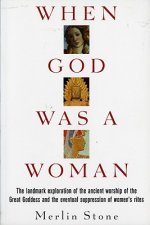
When God Was A Woman
492 Kč -

The Mastery of Love
309 Kč -

Vintage Menswear
456 Kč -

Who Cooked the Last Supper?
427 Kč -

Women Who Run With The Wolves
433 Kč -

The Way of Men
342 Kč -

The Autobiography of Malcolm X
237 Kč -

Second Sex
285 Kč -

Goddesses in Everywoman
303 Kč -

Talking with Female Serial Killers - A chilling study of the most evil women in the world
276 Kč -

Intellectuals and Society
557 Kč -

Women in the Qur'an
480 Kč -

Erotic Bondage Book
363 Kč -
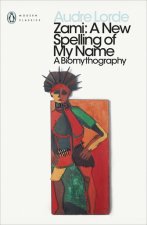
Zami
302 Kč -

Nine Years among the Indians, 1870-1879
614 Kč -

Dark Emu
356 Kč -

Childhood and Society
394 Kč -

Happy City
303 Kč -

The Male Nude
505 Kč -

The Bell Curve
463 Kč -

We Should All Be Feminists
196 Kč -

Empire of the Summer Moon
356 Kč -

Radium Girls
276 Kč -

Dance of Anger
276 Kč -

Beauty Myth
356 Kč -

Muqaddimah
539 Kč -

TROUBLEMAKER
381 Kč -
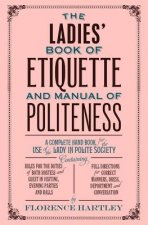
Ladies' Book of Etiquette and Manual of Politeness
381 Kč
Osobní odběr Praha, Brno a 12903 dalších
Copyright ©2008-24 nejlevnejsi-knihy.cz Všechna práva vyhrazenaSoukromíCookies


 Vrácení do měsíce
Vrácení do měsíce 571 999 099 (8-15.30h)
571 999 099 (8-15.30h)